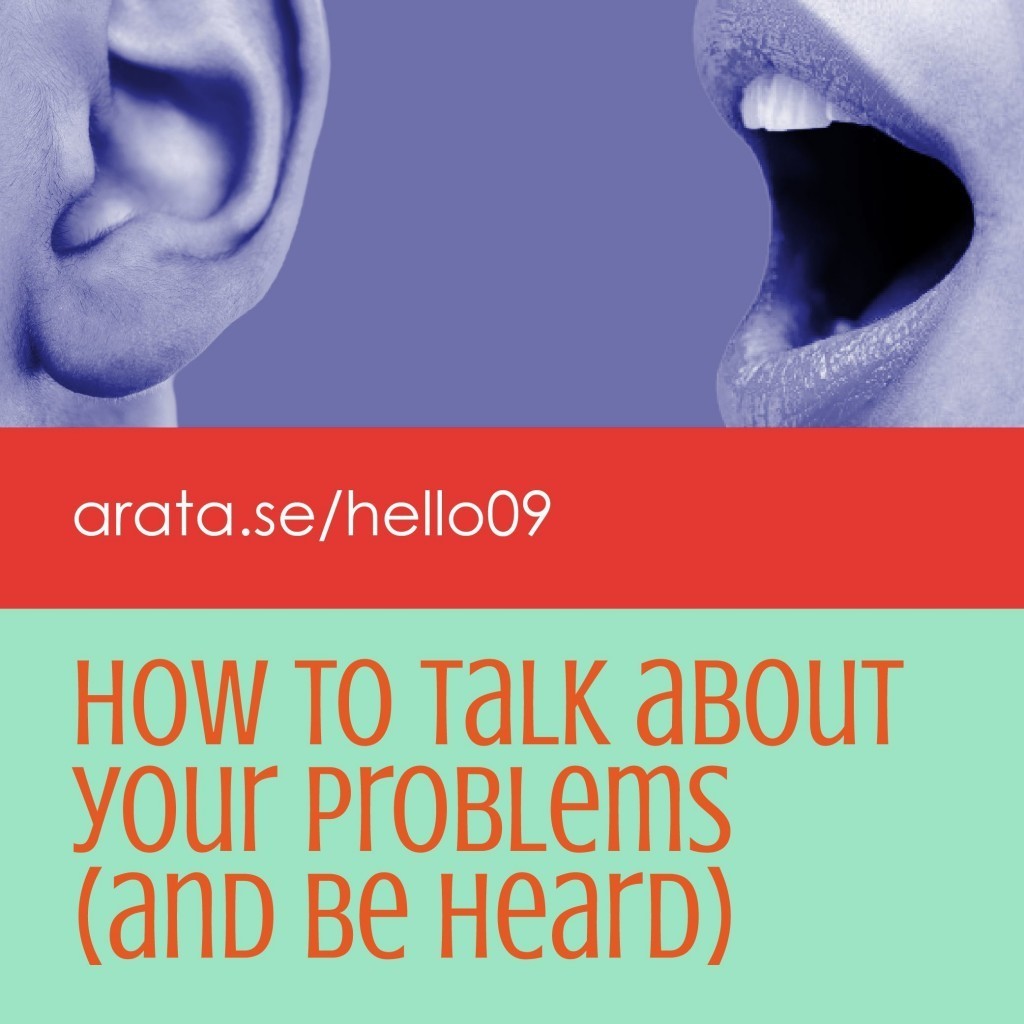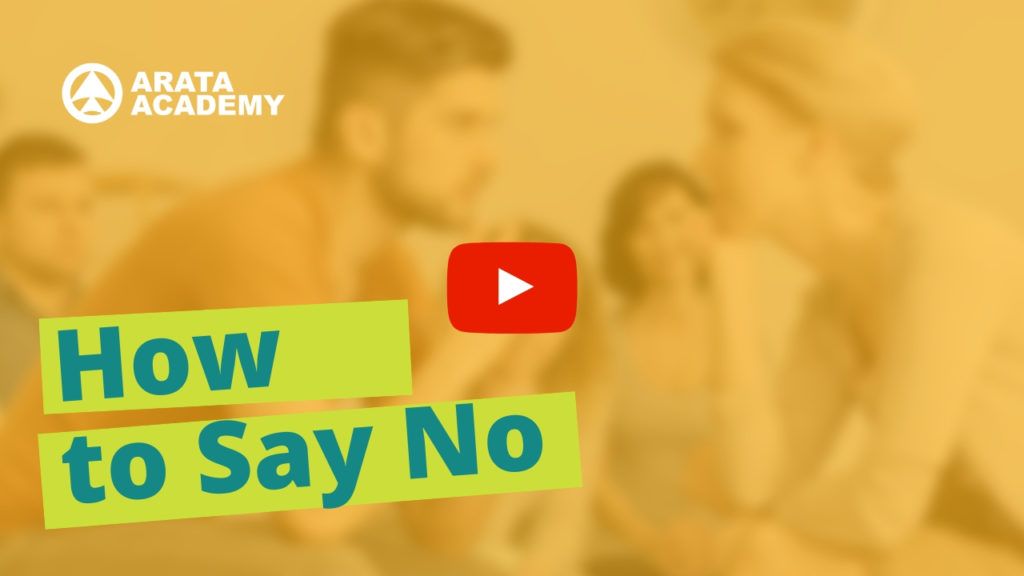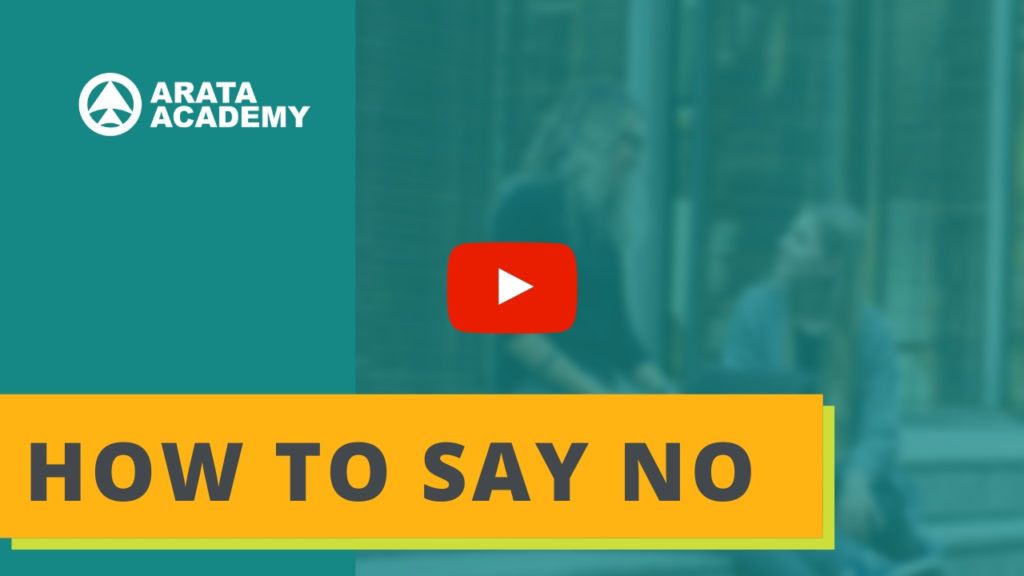Hello! Seiiti Arata. When we experience problems and we want to talk about them, how can we talk in such a way that we’ll be heard? There are four simple communication techniques we can use to avoid drama or giving the impression that we are just complaining.
In the previous video we discovered how to stop complaining.
Complaining is inefficient when there are other options that can produce more results.
Just talking about our problems, however, can be fulfilling—as long as we do it in a positive way. This is what we will learn today. Get your pen and paper so we can start.
1. Clarify your expectations before speaking.
Start by making very clear what you need. Do you want to just talk and to be listened to?
Or are you also expecting to hear advice? Are you ready to start creating some plan of action?

If you are in a moment when your need is just to be heard, if you just want some empathy, please verbalise this so the other person understands. There’s a reason for that, and it is step number two:
2. Be prepared to receive unsolicited advice.
This is the origin of so much tragic drama, and you should already be prepared for this.
People who love you have the best intentions and want to fix things. They want you to change because they believe this will make you happier. Maybe they believe that just talking will not help you, so they will actively avoid listening.
It is very challenging for your friends and family members to simply listen, to just be with you, accepting you for who you are. If they feel your pain and hear your problems, they will feel compelled to start searching for solutions.
This is when step three will become helpful.
3. Use the TIME FREEZE.
When the unsolicited advice arrives (and it will arrive!) make a TIME FREEZE. In other words, just pause for a moment and check your feelings.
When they are trying to change you, do you feel loved? Can you feel that this unsolicited advice is an expression of caring? If you can accept this as a gift, you may want to discuss the plan of action with them.
However, the advice may sound patronising or lecturing. Maybe you feel judged. Perhaps you resent that your request for empathy was ignored. Some embarrassment or even anger may arise when your companion points out your flaws, and then there will be the instinctive impulse to defend yourself.
Keep that TIME FREEZE going on, get the awareness about all these emotions you are feeling and redirect them so you can have a positive outcome from this situation.

First make your effort to understand the other person. Don’t turn off your time freeze! Hold your desire to be understood, because first we will understand the other.
People who love us often have high expectations of us. They may not understand our choices because they have their own life experiences and values. Their past experience will influence their capacity to listen with an open mind. So they will look at us through their lenses, and they will project their world view onto us.
This is how they are trying to help: by putting themselves in our shoes and suggesting how we should change to have a better life.
Let’s now move to the final step.
4. Appreciate and backtrack
Once we self-evaluate and recognise all these feelings, once we understand the other person, then we can release the time freeze and express our gratitude. We can say we understand that they are sharing their ideas and suggestions with good intentions.
And we can use this moment to remember that at this point we are not yet seeking change—it is most important right now to have empathy, to have someone who can just listen and accept us for who we are.
This is when you can use the technique of backtracking. We can kindly ask, “Hey, this is very important to me right now. Can you please tell me what you heard me ask from you?”

At this moment it is likely that they will either refuse to reply by saying, “No problem, I understand.”
Or they may give you a wrong reply, missing the point that your need is to be heard and that you don’t need advice at this moment.
Your backtracking will be fruitful when the person talking to you can give some answer that matches your expectations. This is a great indicator that you have successfully managed to talk about your problems.
Please note, it is best to find someone else to talk to if you are in danger, are being violently abused or are facing a serious problem. In special cases the right person will be a professional, such as the police, a medical doctor or another licensed professional who is qualified to take care of you. Today we are focusing only on soft problems, when it is appropriate to ask a friend to just listen and talk to us.
Sometimes we need to just simply to be listened to when we want to talk about our problems. Remember: if you’re ready to move into action and discuss different ideas and advice, great. If you’re not ready, use the backtracking to clarify your need to just be heard.

